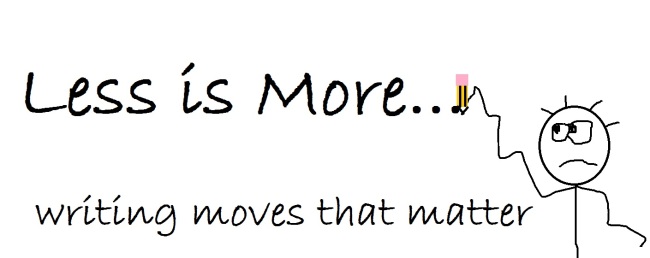How many times have you heard that little piece of advice, hmm? A lot probably, but I want to talk about it again in relation to some of my recent activities. But first let me say, “hi, how are all of you? How have you been? My handful of regular readers, I’ve missed you!” Sorry for vanishing, but I was sucked in by this torrential force known as academia. While I was away I wrote articles for journals, arranged to go to a conference in Canada (and hopefully lead a panel), and learned more than I ever needed to know about Utopianism. Brain = full. Now to cherish my month of pseudo-freedom by goofing around on the internet.
But this is not goofing around. This is serious business. In my time away, I also sent a short story out to some different anthologies. It got rejected every single time, sadly, but I plan to keep trying. Recently, I got caught up talking to a colleague who used to run a journal in my field. He heard that I was sending this story out and failing to get in, and said I should read it for a class one day. That translates to me reading a reject story to fifteen of my peers and one brilliant pioneer of science fiction studies. No pressure, right?
So I sent the story out to some friends for some quick edits. The two that got back to me said the same thing, “We need more.” The emotion was not translating on the page, and they wanted to see the character’s feelings.
I struggled with this kind of feedback, because I always hated writing about my character’s emotions in excess. Nobody wants to hear what you have to whine about, protagonist. Shut up and do what you’re supposed to do. Your actions will convey the emotions. I always made sure to show something happening rather than say, “She felt sad” because really, how much more imprecise can you be after “sad”? Sad means something different for every single person, so I always try to show the emotions through physical actions. A person jumps. They frown. They have a nervous tick I describe comically. There’s something to tell what kind of pressure or elation that character might be feeling, and it certainly does not take place in the form of an adjective.
Now, this isn’t a hard rule. Of course the simple adjective gets out every now and then. It’s necessary for good writing to be varied. But I was having a hard time seeing how I could bring the emotions of these characters to the forefront without explicitly saying, “Character Y was pissed off”.
But I tried anyways, and I read the story to the class. Some of the changes I made worked really well. I changed the beginning to show the terrifying enemy my protagonist faces. It was an emotionally charged scene. It really sucked a reader in… And then there were some scenes that flopped. I added some inner dialogue from the protagonist like my readers suggested. It felt flat when I read it aloud, though. There were literally moments when I was reading when I thought, “Why the hell is this in here?”
At the end of my reading, the professor, my colleague, was impressed. He asked, “And have you published this, yet?”
So I explained to him the tragic tale of rejection after rejection I had faced. Before I started submitting it places, I had won some local readings with it, so I thought it would actually stand a chance. After the class ended, the professor gave me some advice, “You know. It’s really quite good, and this is coming from someone who reads a lot of fiction. My only suggestion for you would be this: less is more.”
So, this man who edited a national journal had found some value in the story. Granted, he’s probably more fond of me than an anonymous reader, considering we work together. But his comment makes sense. I was trying to add more where the story really did not need more. I added to the beginning, and that worked out, but nothing else really needed extra. In fact, there were some scenes I could have done away with entirely. They were dull. They did not contribute emotion or meaning, and so the readers who wanted me to add more reacted against these scenes.
What I think I am trying to convey is this: sometimes, the answer to bringing the emotion is cutting out the vapid and empty parts. It’s easier to tell more with less of a story when the parts there express so much already. This might seem like a ramble, or a really long way to say “less is more” but I think it is some valuable tips on writing that every reader or author could benefit from. I also thought it was the perfect way to resume regular updates, which I sincerely hope will stay regular.
Before I go, I want to fill my readers in on my schedule. Over the next month, I will be finishing a novel with my coauthor, Rae D Magdon, for publication within the next few months. I will also be working on my story Chronicles of Osota: Warrior, a fantasy novel to be released some time in the next few months. For those of you who are fans of my fictionpress or fanfiction.net stories, I will be updating those as well, hopefully. Anyways, happy holidays, and please comment if you have any thoughts to share on the craft of writing, this topic, or anything else you with to discuss.

